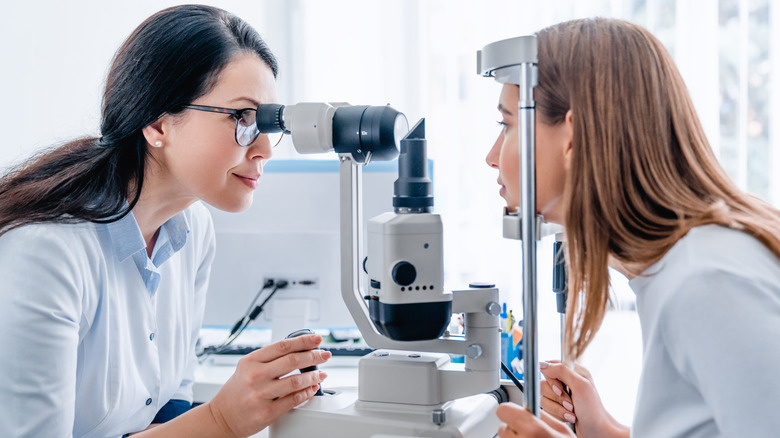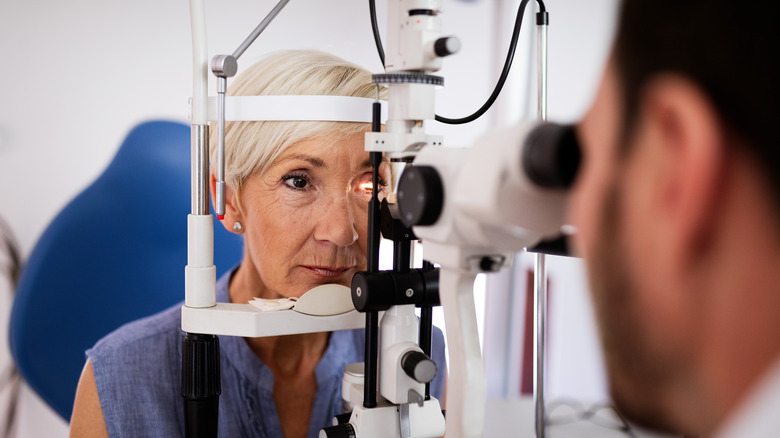How Often Should You See An Eye Doctor?
Getting your eyes checked regularly is just as important as having an annual physical. But how often is regularly? The answer isn't so straightforward and depends on your personal health status and age. How often do eye care professionals recommend that you schedule an appointment with your eye doctor, and what exactly happens during a routine eye exam?
Regular eye exams are critical when it comes to your overall health. According to the U.S. Centers for Disease Control and Prevention (CDC), roughly 11 million people in the U.S. who are over the age of 12 are in need of vision correction. Even if you're not experiencing any issues with your eyesight, routine eye exams can help detect and treat any early signs of eye disease.
When you get an eye exam, the optometrist or ophthalmologist will test eye alignment and movement, visual sharpness, and depth perception (via CDC). In addition, they will typically dilate the pupils in order to do an internal examination of the eye, which can help with the early detection of health conditions such as diabetes or high blood pressure.
Eye exam frequency should increase with age
Medical experts recommend that a baby's first eye exam happen at 6 months old (per All About Vision). The next exam should be conducted at age three, followed by another before the start of first grade. After that, it's recommended to have children's eyes checked every two years, unless the child displays eye strain. Eye care professionals at Atlantic Eye Institute note that signs of eye strain or possible vision loss include frequent blinking, tilting of the head to one side, an eye that strays to the side, or the child holding reading materials at an extremely close or far distance.
How often adults should get their eyes examined varies. Experts at the Atlantic Eye Institute encourage those between the ages of 20 and 39 to have a complete eye examination every two to three years. People age 40 to 64 should visit the eye doctor more often, because the eye undergoes changes and vision starts to diminish. Plus, this age group is prone to developing health conditions like diabetes and high blood pressure, which can lead to vision loss. After age 65, and if you wear glasses or contact lenses (at any age), get your eyes examined every year.
While these timelines are offered as general expert recommendations, it's important to take your age, personal medical history, and vision health into account as a whole to determine how often eye exams will be appropriate for you.


